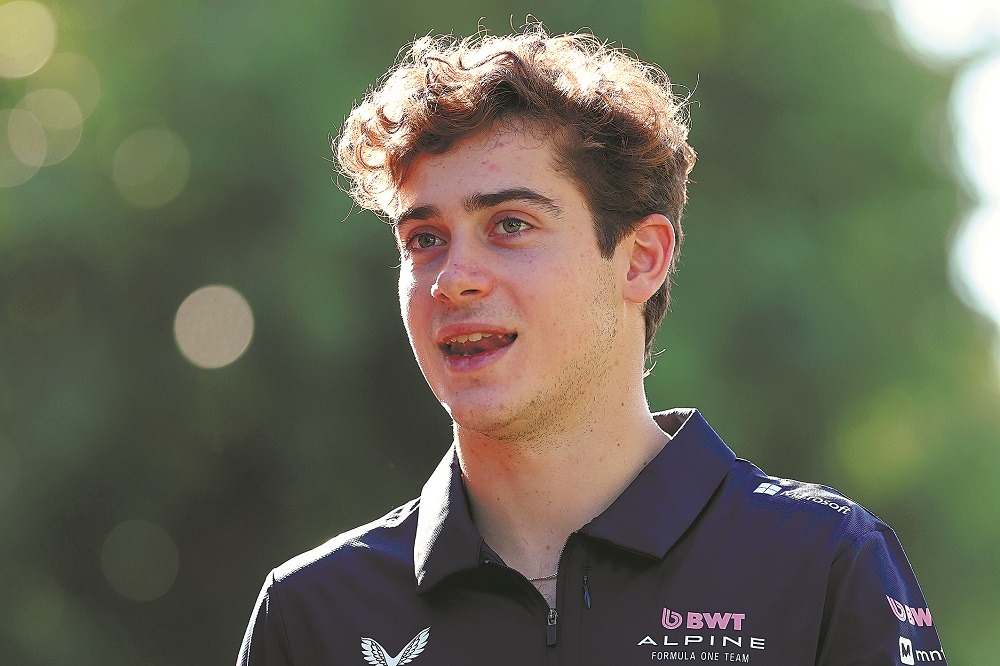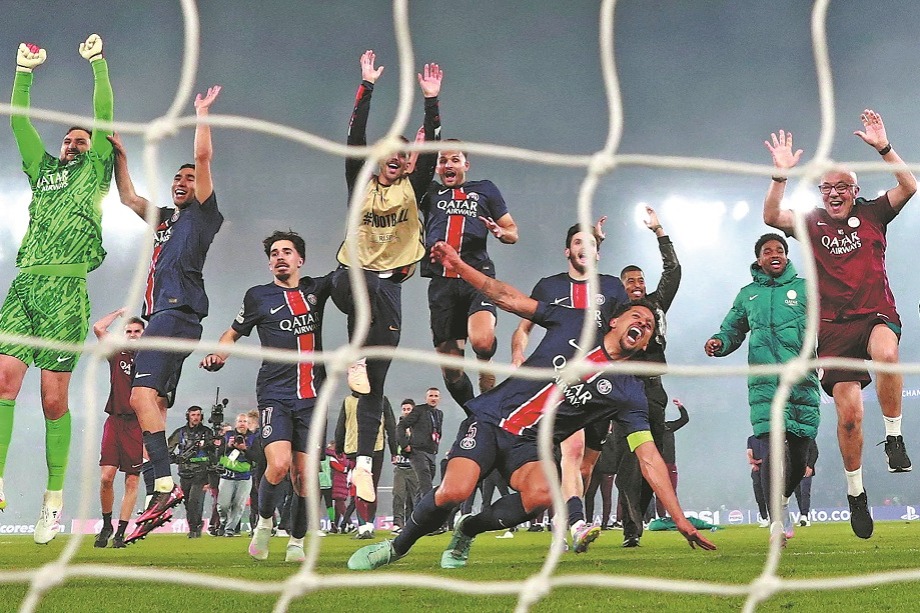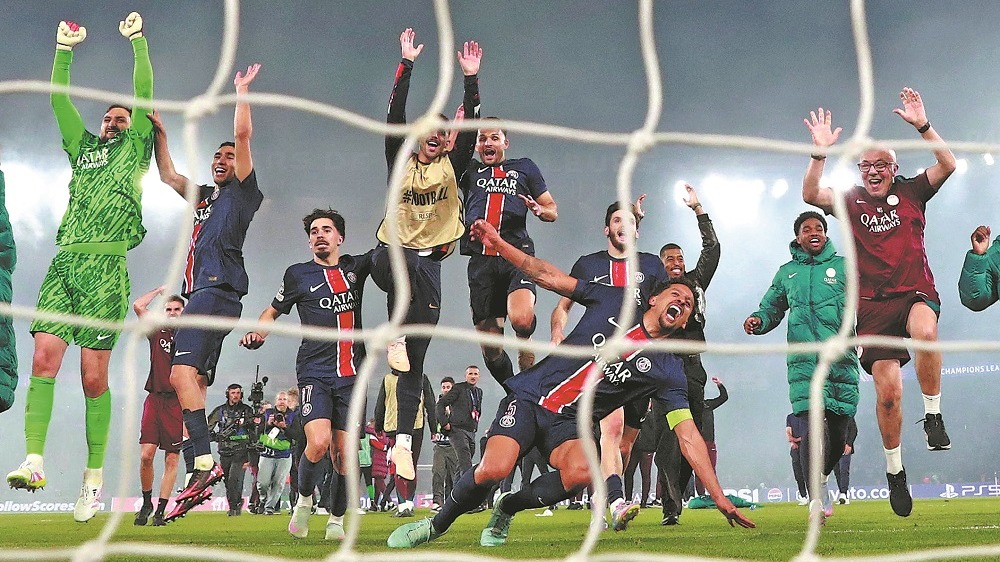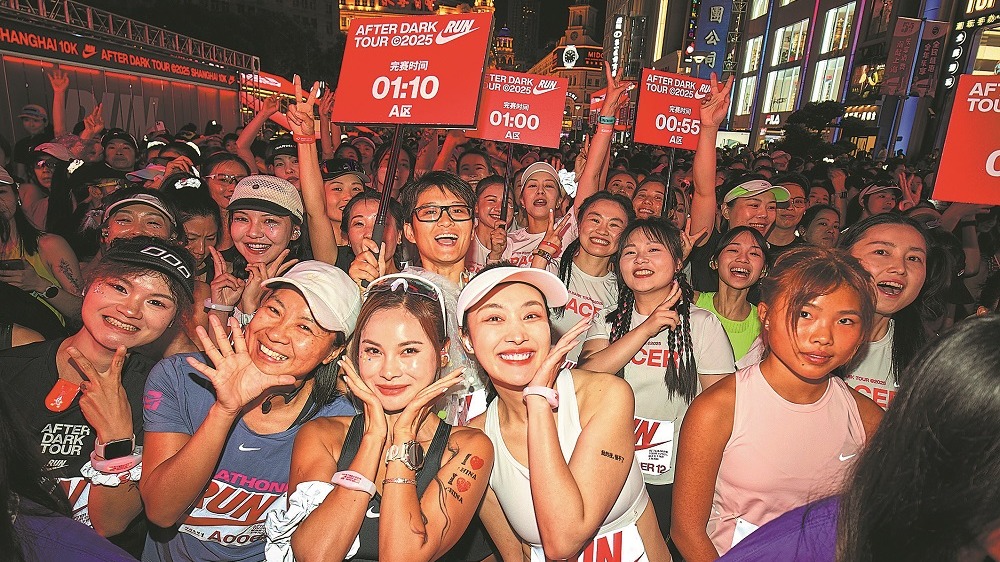Sun Yang asks anti-doping authorities to respect athlete rights

Chinese Olympic swimmer Sun Yang called on judges to reach an "impartial decision" and made an emotional plea to anti-doping authorities to respect the rights of athletes at a hearing held at the Court of Arbitration for Sport, or CAS, in Montreux, Switzerland on Friday.
The court heard an appeal brought by the World Anti-Doping Agency, or WADA, relating to an incident on Sept. 4, 2018 when Sun refused a drug test at his family home. Sun said that drug control officers had not provided adequate documentation, and he also became suspicious when one of them started filming the drug test.
At an earlier hearing held by the International Swimming Federation Doping Panel, or FINA DP, judges ruled in Sun's favour, stating that the International Standard for Testing and Investigations protocol had not been adequately followed during the testing. But WADA's appeal meant the case was sent to CAS, which is often referred to as the Supreme Court for sports.
In his closing statement on Friday, Sun noted that he had chosen to make this hearing open to the public, an uncommon move in such a tribunal.
"Since the night of Sept. 4, myself and my team have suffered a lot, physically and mentally, and my reputation has been compromised significantly," Sun said.
"Today, I learned from my counsel translations about WADA's closing remarks which indicated that we have been lying, changing or manipulating facts in our statement submissions, however I would like to make the point that my request for this public hearing today is to be open and transparent to the whole world and to disclose the truth about what happened."
During the proceedings on Friday, which lasted 10.5 hours, a panel of three judges heard from counsel representing WADA and those representing Sun and FINA, as well as eight witnesses, including Sun's mother Ming Yang, and his doctor Ba Zhen, who were both with him on the evening of the disputed test.
The first half of the hearing was frequently interrupted due to problems with the translation. Sun was questioned in English and he replied in Chinese, with interpreters providing translations both ways. At times the translation was so poor that parts of Sun's testimony were incomprehensible. The translators were replaced before the afternoon session with an individual agreed upon by both sides.
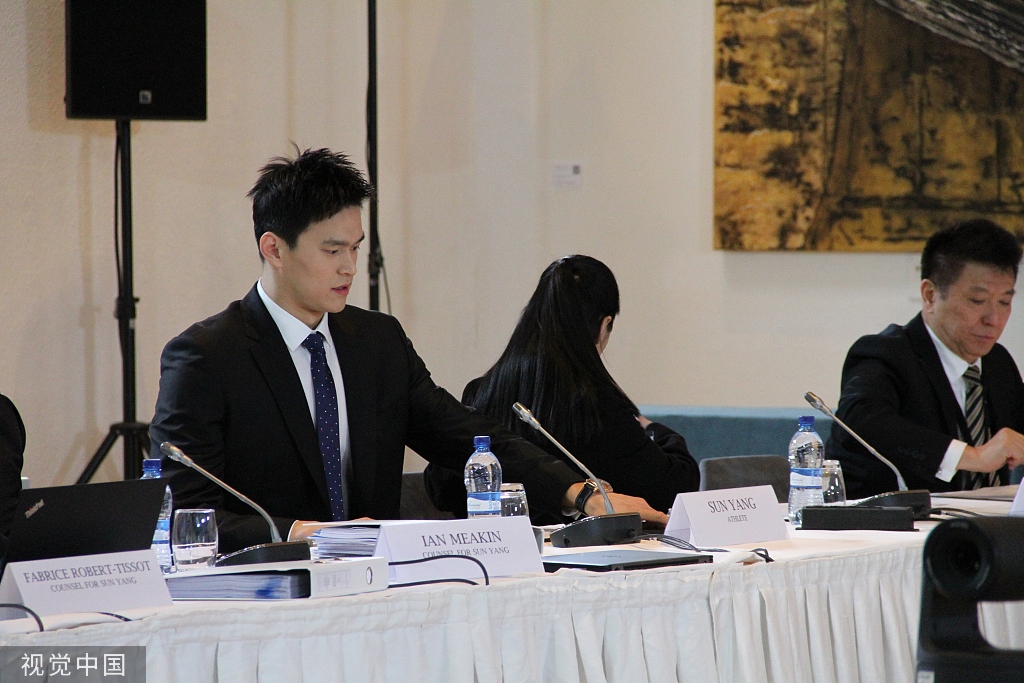
The judges are due to deliberate over the case in the coming days. Sun, who is an Olympic gold medallist, could face a lifetime ban if the court rules in WADA's favour. The stakes are also high for anti-doping authorities and the wider sporting community, as the outcome of the case could influence future regulations regarding liability rules and the rights of athletes.
Sun was tested 180 times between 2012 and 2018, according to court documents. He was disciplined on one previous occasion in 2014 when he tested positive for trimetazidine, a stimulant normally used to treat angina that was added to WADA's banned list that year. Sun said his doctor had prescribed the medication due to a heart condition that left him feeling faint on occasion after training. The China Anti-Doping Agency, or CHINADA, handed the swimmer a 3-month ban and a 5,000 RMB ($713) fine for the violation.
During witness testimony, Ba said that Sun had filed a complaint on one previous occasion following a test conducted by officers from International Doping Tests and Management, or IDTM, the same agency that performed the test on Sept. 4, 2018.
On the first occasion, Sun provided samples. However, in the instance in September, Sun did not let the officers leave with his samples, on the advice of Ba, who had received recommendations over the phone from Han Zhaoqi, the deputy director of the Zhejiang anti-doping center.
Much of the questioning from both sides at the hearing centered around what proof of authorization drug officers had provided Sun prior to carrying out tests, and whether they had sufficiently identified themselves and their agency under WADA's guidelines.
"I realised they didn't have papers to prove their identification," Sun said. "The officials were not even capable of proving their identity. How could I allow them to take my sample? If they had been professional and had shown their identification, we would not be here today."
During witness testimony, WADA deputy director of standards Stuart Kemp was asked if it was normal for testing officers and chaperones to film during tests.
"It would not be a typical practice whatsoever. It would not be an acceptable practice whatsoever for a chaperone to take photos," said Kemp. "They are strongly advised to keep their phones to themselves."
WADA representatives also questioned if violations had occurred when members of Sun's team handled, opened and damaged testing equipment.
In their closing remarks, WADA counsel said that adequate documentation had been provided to Sun on the evening in question. WADA's lawyers also said that, even if drug collection officers had failed to adequately follow protocol outlined under the International Standard for Testing and Investigations, Sun should still have provided his blood and urine samples, and which he could have filed a complaint.
Sun provided a blood sample, but the officers did not leave with it, and the athlete did not provide a urine sample.
In his closing statement, Sun made broader points about the state of anti-doping in general. He said he was happy to abide by the strict liability that WADA and other agencies place on athletes, however he said authorities needed to do more to respect rights and privacy.
"Please imagine, a doping control agent illegally bringing in irrelevant, uncredited staff to your home. How can I protect my privacy and personal information?" Sun said.
He also recounted that, during the testing, anti-doping personnel had suggested that he supply a urine sample with his mother in attendance.
"And with respect to the doping control officer's proposal or advice during the event, asking the doping control assistant to watch me urinate with my mother there – would you feel comfortable standing there peeing in front of your mother?" he said.
"What's the point of talking about the spirit of fair play, if an athlete's basic rights and privacy cannot be protected and respected."
Sun also complained that confidential court documents from the earlier FINA DP hearing had made their way into the media.
CAS has not given an indication as to when the judges will reach their determination.
Most Popular
- LA Memorial Coliseum, Stadium to share 2028 Olympic, Paralympic ceremonies
- Celtics let 20-point lead slip again as NY Knicks it
- Out with the new, in with the old in a chaotic 24 hours at Alpine
- Arteta: Arsenal was the better team, despite semifinal loss
- Thunder claps Nuggets by 43 to level series
- Rock solid PSG weathers Gunners' barrage

















